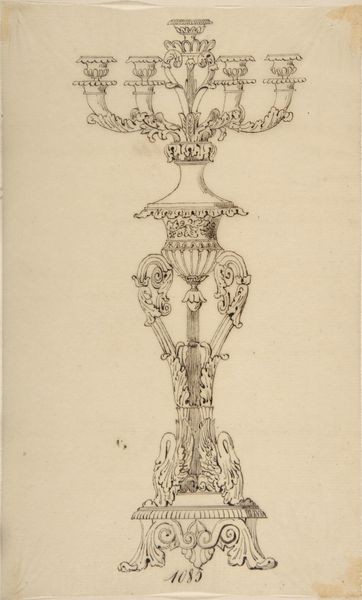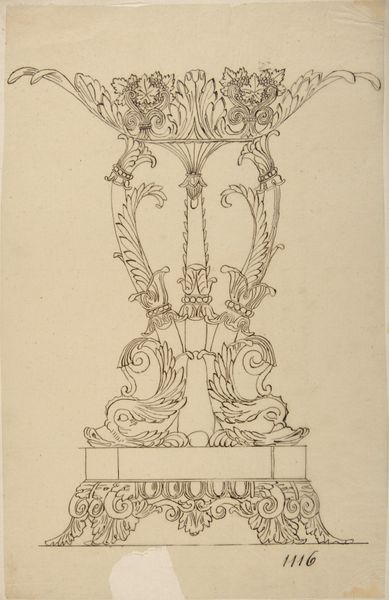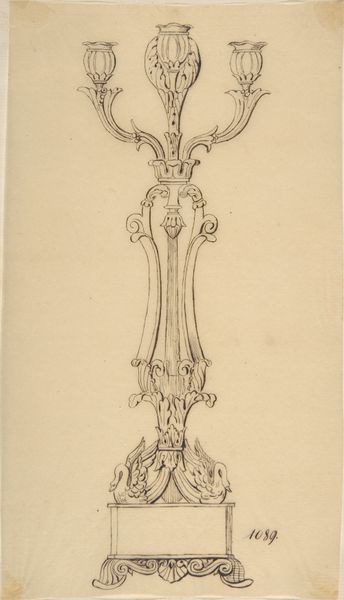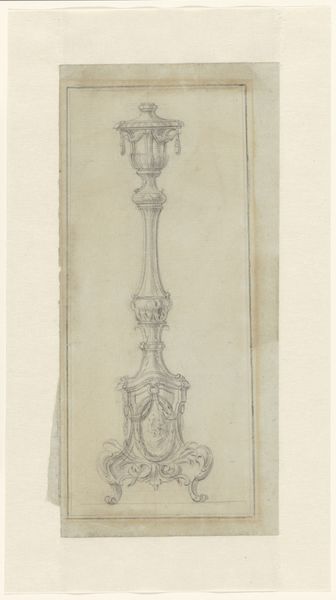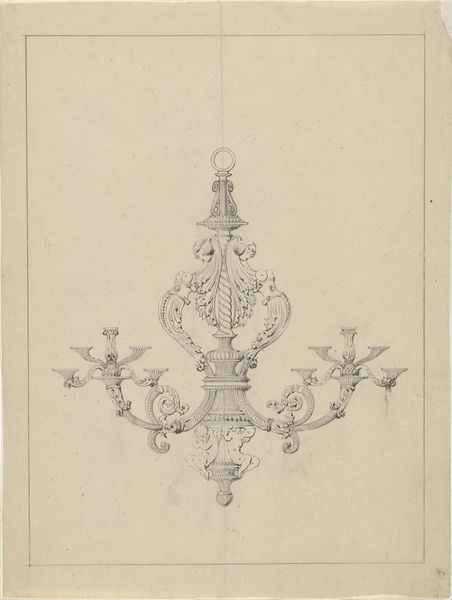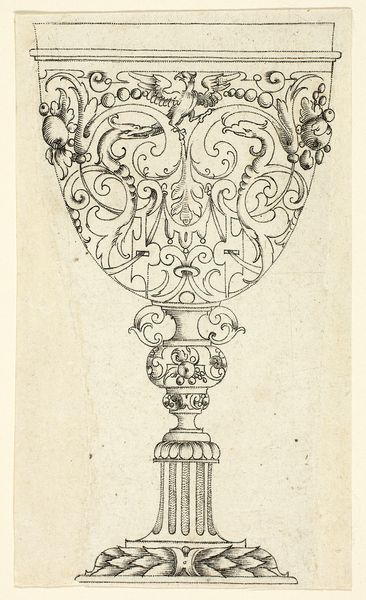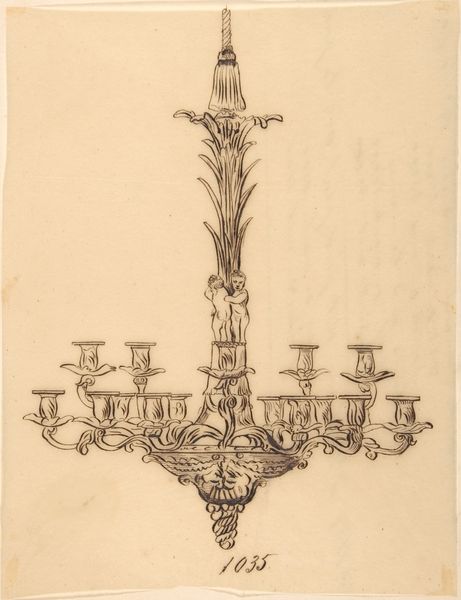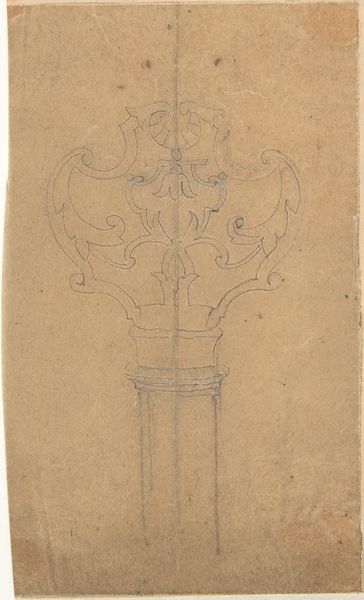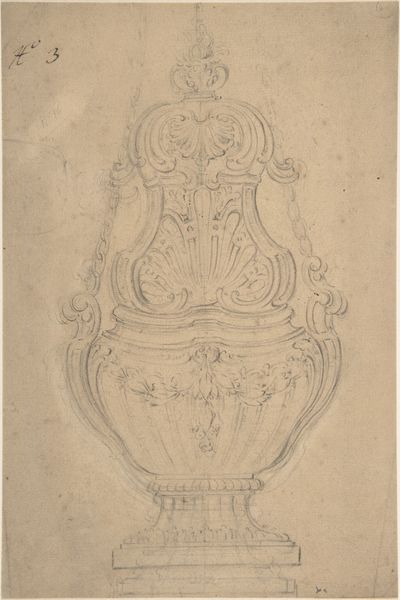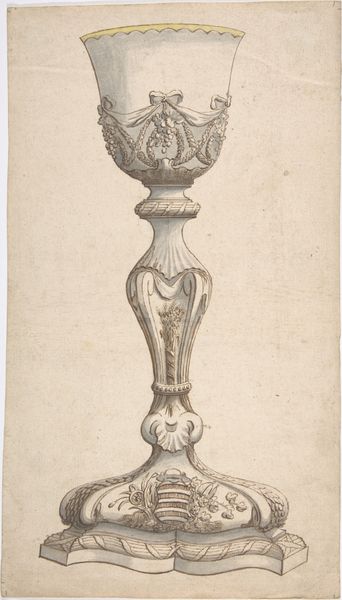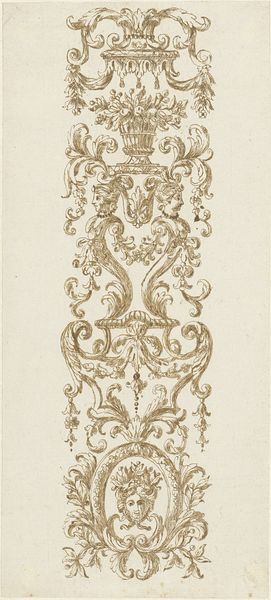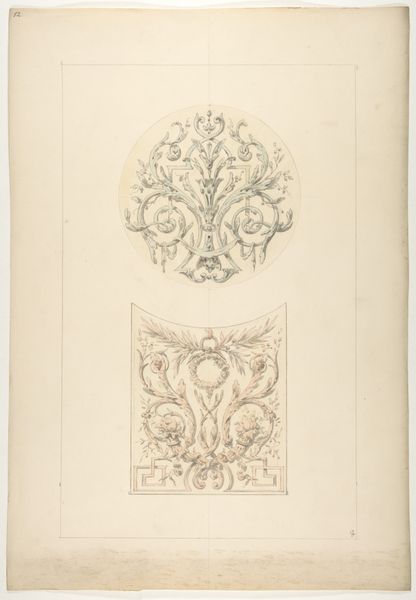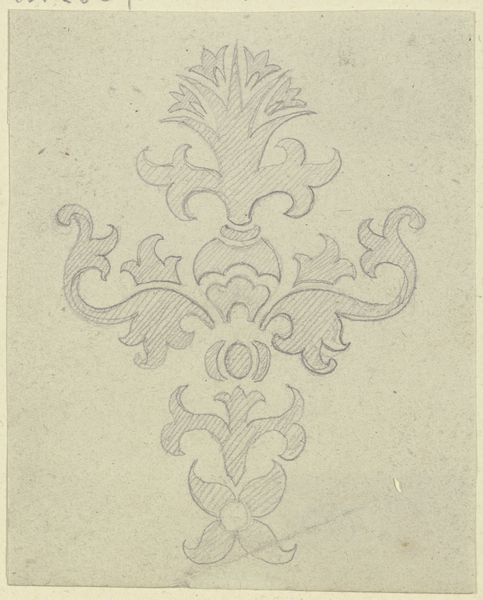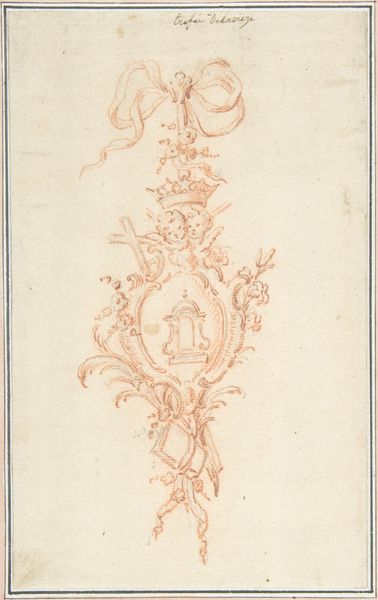
drawing, print, paper, ink
#
drawing
#
neoclacissism
#
toned paper
#
light pencil work
#
ink drawing
#
pen drawing
# print
#
pen sketch
#
pencil sketch
#
paper
#
form
#
ink
#
ink drawing experimentation
#
geometric
#
pen-ink sketch
#
line
#
pen work
#
sketchbook drawing
#
decorative-art
Dimensions: sheet: 8 15/16 x 4 13/16 in. (22.7 x 12.3 cm)
Copyright: Public Domain
Editor: Here we have an anonymous 19th-century ink drawing titled "Design for a Candelabra." It's currently at the Metropolitan Museum of Art. What strikes me is the incredible detail and symmetry. How does this piece speak to you? Curator: Well, considering the context of 19th-century decorative arts, this drawing reflects a broader societal obsession with refinement and status. Candelabras, even designs for them, became symbols of wealth and sophisticated taste. Look at the neoclassical motifs – the acanthus leaves, the balanced proportions. How might its function as lighting impact your interpretation? Editor: That's a great point. It's not just a drawing; it's a blueprint for illuminating spaces. And thinking about the time, before electricity, the control of light was a sign of power, wasn’t it? This kind of candelabra in a home would immediately denote someone of great influence. Curator: Exactly. The candelabra’s intended placement – in a wealthy home, a public building – dictated its form and grandeur. The art became a statement of social identity and perhaps, political leanings through aesthetic preferences. But who controlled these aesthetics, and who was left out? Editor: I hadn't considered who *didn't* have access to such opulence and how that impacts the meaning of the piece itself! So much of the statement relies on who gets to participate. Curator: Precisely! Think of the socio-political forces that enabled the production and consumption of such luxury items. Whose labor was involved? What does this design exclude or silence? These are crucial questions when viewing such artifacts. Editor: It really gives a whole new weight to the term “decorative arts.” It's more than just decoration. Curator: Indeed. By examining its historical and social implications, we start to see how even the most seemingly innocuous designs reflect and reinforce power structures of the time. Editor: Wow, I'll never look at a candelabra the same way again! Thanks, that was fascinating. Curator: My pleasure. Remember, every artwork engages in a dialogue with its historical context, revealing complex power dynamics worth exploring.
Comments
No comments
Be the first to comment and join the conversation on the ultimate creative platform.
